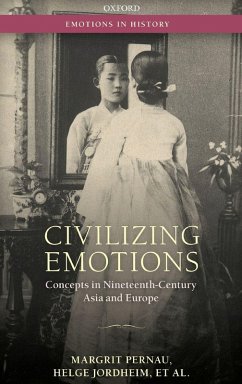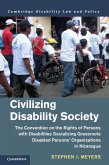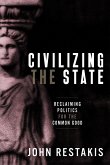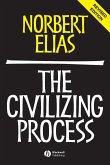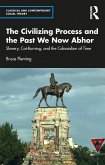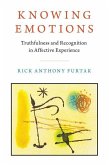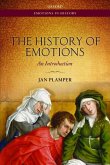- Gebundenes Buch
- Merkliste
- Auf die Merkliste
- Bewerten Bewerten
- Teilen
- Produkt teilen
- Produkterinnerung
- Produkterinnerung
Traces the history of the concepts of civility and civilization in nineteenth-century Europe and Asia and explores why and how emotions were an asset in civilizing peoples and societies - their control and management, but also their creation and their ascription to different societies and social groups.
Andere Kunden interessierten sich auch für
![Civilizing Disability Society Civilizing Disability Society]() Stephen J. Meyers (University of Washington)Civilizing Disability Society34,99 €
Stephen J. Meyers (University of Washington)Civilizing Disability Society34,99 €![Civilizing the State Civilizing the State]() John RestakisCivilizing the State19,99 €
John RestakisCivilizing the State19,99 €![Civilizing Cities: an analysis of the major political issues of our time Civilizing Cities: an analysis of the major political issues of our time]() David WilliamsCivilizing Cities: an analysis of the major political issues of our time37,99 €
David WilliamsCivilizing Cities: an analysis of the major political issues of our time37,99 €![The Civilizing Process The Civilizing Process]() Norbert Elias (Late of Universities of Leicester, Ghana, FrankfurtThe Civilizing Process46,99 €
Norbert Elias (Late of Universities of Leicester, Ghana, FrankfurtThe Civilizing Process46,99 €![The Civilizing Process and the Past We Now Abhor The Civilizing Process and the Past We Now Abhor]() Bruce FlemingThe Civilizing Process and the Past We Now Abhor41,99 €
Bruce FlemingThe Civilizing Process and the Past We Now Abhor41,99 €![Knowing Emotions Knowing Emotions]() Rick Anthony FurtakKnowing Emotions65,99 €
Rick Anthony FurtakKnowing Emotions65,99 €![The History of Emotions The History of Emotions]() Jan Plamper (Professor of History, Professor of History, GoldsmithsThe History of Emotions49,99 €
Jan Plamper (Professor of History, Professor of History, GoldsmithsThe History of Emotions49,99 €-
-
-
Traces the history of the concepts of civility and civilization in nineteenth-century Europe and Asia and explores why and how emotions were an asset in civilizing peoples and societies - their control and management, but also their creation and their ascription to different societies and social groups.
Hinweis: Dieser Artikel kann nur an eine deutsche Lieferadresse ausgeliefert werden.
Hinweis: Dieser Artikel kann nur an eine deutsche Lieferadresse ausgeliefert werden.
Produktdetails
- Produktdetails
- Emotions In History
- Verlag: Oxford University Press
- Seitenzahl: 364
- Erscheinungstermin: 5. November 2015
- Englisch
- Abmessung: 241mm x 159mm x 27mm
- Gewicht: 716g
- ISBN-13: 9780198745532
- ISBN-10: 0198745532
- Artikelnr.: 47867481
- Herstellerkennzeichnung
- Libri GmbH
- Europaallee 1
- 36244 Bad Hersfeld
- gpsr@libri.de
- Emotions In History
- Verlag: Oxford University Press
- Seitenzahl: 364
- Erscheinungstermin: 5. November 2015
- Englisch
- Abmessung: 241mm x 159mm x 27mm
- Gewicht: 716g
- ISBN-13: 9780198745532
- ISBN-10: 0198745532
- Artikelnr.: 47867481
- Herstellerkennzeichnung
- Libri GmbH
- Europaallee 1
- 36244 Bad Hersfeld
- gpsr@libri.de
Margrit Pernau is Senior Researcher at the Center for the History of Emotions at the Max Planck Institute for Human Development in Berlin. She studied History and Public Law at the University of Saarland and University of Heidelberg where she took her PhD in 1991. From 1997 to 2003, Pernau conducted research in Delhi on 'Plural Identities of Muslims in Old-Delhi in the 19th century' and has been research fellow at the Social Science Research Center and the Modern Orient Centre, both in Berlin. Besides the history of emotions, her areas of interest include modern Indian history, the history of modern Islam, historical semantics, comparative studies, and translation studies. Helge Jordheim is Professor of Cultural History at the University of Oslo. His main fields of research and teaching are conceptual history, the work of Reinhart Koselleck, the theory and history of times and temporalities, and eighteenth century intellectual and literary culture in Western Europe. Between 2009 and 2013 he was Academic Director of the interdisciplinary research program Cultural Transformations in the Ages of Globalization (KULTRANS) at the University of Oslo, Norway. He has been a visiting fellow at University of Gothenburg, Ecole des Hautes Etudes en Sciences Sociales in Paris, and Zentrum fur Literatur und Kulturwissenschaft in Berlin. He was born in Oslo and educated at the University of Oslo and the FU Berlin. In 2006 he received his PhD from the University of Oslo in German Literature, which was awarded His Majesty the King's Gold Medal for best dissertation in the humanities for that year. Orit Bashkin received her PhD from Princeton University (2004) and her BA (1995) and MA (1999) from Tel Aviv University. She is now a professor of modern Arab history at the Department of Near Eastern Languages and Civilizations at the University of Chicago. Her publications include multiple book chapters and articles on the history of Arab-Jews in Iraq, on Iraqi history, and on Arabic literature. She has also edited a book entitled Sculpturing Culture in Egypt [le-fasel tarbut be-mitzrayim] with Israel Gershoni and Liat Kozma, which included translations into Hebrew of seminal works by Egyptian intellectuals. Christian Bailey is a lecturer in history at The Open University, UK. He completed his PhD at Yale University in 2009 before moving on to the Max Planck Institute for Human Development, where he was a postdoctoral researcher until 2011. Since then, he has been lecturer in history at Balliol College, Oxford and Visiting Assistant Professor at Binghamton University in New York. His first book, Between Yesterday and Tomorrow: German Visions of Europe, 1926-1950 (2013) focused on German ideas for integrating Europe in the mid-twentieth century. He has since turned to the history of emotions, publishing on the history of honour in Britain and Germany and on changing conceptions of emotions in European encyclopaedia since the 18th century. He is currently writing a book on love between Jews and other Germans from the 1870s to the 1960s. Oleg Benesch is Anniversary Research Lecturer in the Department of History at the University of York. Before arriving at York, he was Past & Present Fellow at the Institute of Historical Research at the University of London. Benesch obtained his PhD from the Department of Asian Studies at the University of British Columbia. He spent a total of six years studying and researching in Japan, including two years conducting research at Hitotsubashi University in Tokyo. His book Inventing the Way of the Samurai: Nationalism, Internationalism and Bushido in Modern Japan was published by Oxford University Press in 2014. Benesch's research focuses on the historical exchange and development of ideas and concepts across societies, with a focus on interactions between Japan, China, and the West. He tends to take a comparative approach to research, and his work examines themes including nationalism, identity, nostalgia, masculinity, memory, and authenticity. Jan Ifversen holds a PhD in cultural studies from Aarhus University, where he is currently vice dean of knowledge exchange in the faculty of Arts. From 2004 to 2011, he was head of the Department of History and Area Studies at the same university. He is the author of two books in Danish, a history of current European history (Hjem til Europa, 1992) and a book on power, democracy and discourse (Om magt, demokrati og diskurs, two volumes , 1997). He has published many articles on conceptual history, European history, European identity politics, and the history of politics. He is one of the founding members of the international research group on conceptual history, History of Concepts Group. From 2000 to 2009 he served as its executive secretary. Mana Kia is Assistant Professor in the Department of Middle Eastern, South Asian, and African Studies at Columbia University. After receiving her PhD from Harvard University in History and Middle Eastern Studies (2011), she was a postdoctoral fellow at the Center for the History of Emotions at the Max Planck Institute for Human Development in Berlin. Her work generally engages with the comparative and connective social and cultural histories of West, Central, and South Asia (18th-19th centuries). In addition to authoring a number of articles on these topics, she is currently finishing a book entitled, Sensibilities of Belonging: Transregional Persianate Community before Nationalism, and has begun a project on the early modern ethics of love and loyalty in friendships between Iran and India. Rochona Majumdar is Associate Professor in the departments of South Asian Languages and civilizations and Cinema and Media Studies at the University of Chicago. Working at the intersection of cultural and intellectual history, Majumdar is the author of Marriage and Modernity: Family Values in Colonial Bengal (2009) and Writing Postcolonial History (2010). She is co-editor with Dipesh Chakrabarty and Andrew Sartori of From the Colonial to the Postcolonial: India and Pakistan in Transition (2007). Majumdar is currently writing a history of 'art cinema' in India analyzing this film practice as part of the cultural history of the Indian Left. Angelika C. Messner heads the China Center at Kiel University and acts as a Visiting professor at the Zhejiang University, China. She has written and published on a wide range of topics, including Chinese science and medicine, the cultural exchange between China and Europe since the 17th century, and the relationship between sacred and profane in China. She is currently co-speaker of the research group 'Societas Ethologica et Sociologica' and an active member of the research center 'Perception and Reception of Finitude'. She has been an invited Research Fellow at the Max Planck Institute and with the support of the German Science Foundation (DFG) initiated and coordinated the Villa Vigoni Research Conferences, 2009-2011 on the 'Re-Construction of Emotion Knowledge, States of Mind and the Imaginary in Late Imperial China', conferences which have helped to create a network between colleagues working in diverse areas, such as Chinese literary studies, science, technology, and anthropological studies. Myoung-kyu Park is a professor of sociology and a director of the IPUS (Institute for Peace and Unification Studies) at Seoul National University since 2006. He has previously been the Chairman of the History and Society Editorial Board (2002-2004), and President of the Korean Social History Association (2002-2004). His research fields are; social history, sociology of nation and national identity, inter-Korean relations, and sociology of religion. He wrote several books and articles including Sociology of Boundary in Inter-Korean Relations (2012); Nation, People and Citizen: Korean Political Subjectivities from the Conceptual History (2010). Emmanuelle Saada is Associate Professor of French and history and Director of the Center for French and Francophone Studies at Columbia University in the City of New York. Her main field of research is the history of the French empire in the 19th and 20th centuries, with a specific interest in law. Her first book, Les enfants de la colonie: les metis de l'Empire francais entre sujetion et citoyennete, was published in France in 2007 and translated in 2012 under the title Empire's Children: Race, Filiation and Citizenship in the French Colonies. Saada is currently writing a historiographical book reflecting on French and European colonization as a history of the present. She is also working on a project on law and violence in Algeria and France in the 19th century. She has published several articles on colonial law, culture, and politics as well as reflections on recent French debates in the social sciences. Mohinder Singh is Assistant professor in political thought at the Centre for Comparative Politics and Political Theory, School of International Studies, Jawaharlal Nehru University (JNU), New Delhi. Before he joined JNU in April 2013, he taught at the Department of Political Science, University of Delhi. He finished his MA and doctorate at the Centre for Political Studies, JNU. His PhD (2003) was on 'Critique of Modern Time-consciousness in the works of Hannah Arendt and Walter Benjamin'. His recent research has been on the study of Hindi as the language of political discourse in the late 19th century and early 20th centuries in North India with the main focus on the conceptualization of the domains of the social and the political. He has contributed a number of articles to major journals on the subjects of language and the history of concepts. Einar Wigen holds a PhD in Turkish studies from the University of Oslo, Norway, where he now works as a post doctoral fellow on the research project 'Synchronizing the World'. His dissertation is on the conceptual translation between European languages and Ottoman/Turkish, and the consequences this has for social and political interaction. Wigen has previously worked at the Norwegian Institute of International Affairs and the Norwegian Defence Research Establishment. As well as being trained as an Ottomanist, he holds an MA in political science from the University of Oslo, and one in peace and conflict studies from EPU, Austria. He is presently working on a duograph with Iver B. Neumann about the Eurasian steppe. Wigen's publications include 'Ottoman Concepts of Empire' in Contributions to the History of Concepts (2013), and 'Two-Level Language Games: International relations as inter-lingual relations' in the European Journal of International Relations (forthcoming).
* 1: Helge Jordheim and Margrit Pernau: Introduction
* Europe
* 2: Helge Jordheim: The Nature of Civilization: The Semantics of
Civilization and Civility in Scandinavia
* 3: Margrit Pernau: Great Britain: The Creation of an Imperial Global
Order
* 4: Emmanuelle Saada: France: Sociability in the Imperial Republic
* 5: Christian Bailey: Germany: Orientalism, Emotional Geographies, and
the Re-drawing of Civilizational Trajectories
* The Middle East
* 6: Einar Wigen: The Education of Ottoman Man and the Practising of
Orderliness
* 7: Orit Bashkin: Journeys between Civility and Wilderness: Debates on
Civilization and Emotions in the Arab Middle East, 1861-1939
* 8: Mana Kia: Moral Refinement and Manhood in Persian
* South Asia
* 9: Margrit Pernau: The Virtuous Individual and Social Reform: Debates
among North Indian Urdu Speakers
* 10: Mohinder Singh: Spectres of the West: Negotiating a
Civilizational Figure in Hindi
* 11: Rochona Majumdar: From Civilizational Heroism to an Ethic of
Universal Humanity: Bengali Discussions of Civility
* East Asia
* 12: Angelika C. Messner: Transforming Chinese Hearts, Minds and
Bodies in the Name of Progress, Civility, and Civilization
* 13: Oleg Benesch: Patriotism, Virtue, and the Clash of Civilities in
Japanese
* 14: Park Myoungkyu: From Shame to Sympathy: Civilization and Emotion
in Korea, 1860-1920
* 15: Jan Ifversen: Afterword
* Europe
* 2: Helge Jordheim: The Nature of Civilization: The Semantics of
Civilization and Civility in Scandinavia
* 3: Margrit Pernau: Great Britain: The Creation of an Imperial Global
Order
* 4: Emmanuelle Saada: France: Sociability in the Imperial Republic
* 5: Christian Bailey: Germany: Orientalism, Emotional Geographies, and
the Re-drawing of Civilizational Trajectories
* The Middle East
* 6: Einar Wigen: The Education of Ottoman Man and the Practising of
Orderliness
* 7: Orit Bashkin: Journeys between Civility and Wilderness: Debates on
Civilization and Emotions in the Arab Middle East, 1861-1939
* 8: Mana Kia: Moral Refinement and Manhood in Persian
* South Asia
* 9: Margrit Pernau: The Virtuous Individual and Social Reform: Debates
among North Indian Urdu Speakers
* 10: Mohinder Singh: Spectres of the West: Negotiating a
Civilizational Figure in Hindi
* 11: Rochona Majumdar: From Civilizational Heroism to an Ethic of
Universal Humanity: Bengali Discussions of Civility
* East Asia
* 12: Angelika C. Messner: Transforming Chinese Hearts, Minds and
Bodies in the Name of Progress, Civility, and Civilization
* 13: Oleg Benesch: Patriotism, Virtue, and the Clash of Civilities in
Japanese
* 14: Park Myoungkyu: From Shame to Sympathy: Civilization and Emotion
in Korea, 1860-1920
* 15: Jan Ifversen: Afterword
* 1: Helge Jordheim and Margrit Pernau: Introduction
* Europe
* 2: Helge Jordheim: The Nature of Civilization: The Semantics of
Civilization and Civility in Scandinavia
* 3: Margrit Pernau: Great Britain: The Creation of an Imperial Global
Order
* 4: Emmanuelle Saada: France: Sociability in the Imperial Republic
* 5: Christian Bailey: Germany: Orientalism, Emotional Geographies, and
the Re-drawing of Civilizational Trajectories
* The Middle East
* 6: Einar Wigen: The Education of Ottoman Man and the Practising of
Orderliness
* 7: Orit Bashkin: Journeys between Civility and Wilderness: Debates on
Civilization and Emotions in the Arab Middle East, 1861-1939
* 8: Mana Kia: Moral Refinement and Manhood in Persian
* South Asia
* 9: Margrit Pernau: The Virtuous Individual and Social Reform: Debates
among North Indian Urdu Speakers
* 10: Mohinder Singh: Spectres of the West: Negotiating a
Civilizational Figure in Hindi
* 11: Rochona Majumdar: From Civilizational Heroism to an Ethic of
Universal Humanity: Bengali Discussions of Civility
* East Asia
* 12: Angelika C. Messner: Transforming Chinese Hearts, Minds and
Bodies in the Name of Progress, Civility, and Civilization
* 13: Oleg Benesch: Patriotism, Virtue, and the Clash of Civilities in
Japanese
* 14: Park Myoungkyu: From Shame to Sympathy: Civilization and Emotion
in Korea, 1860-1920
* 15: Jan Ifversen: Afterword
* Europe
* 2: Helge Jordheim: The Nature of Civilization: The Semantics of
Civilization and Civility in Scandinavia
* 3: Margrit Pernau: Great Britain: The Creation of an Imperial Global
Order
* 4: Emmanuelle Saada: France: Sociability in the Imperial Republic
* 5: Christian Bailey: Germany: Orientalism, Emotional Geographies, and
the Re-drawing of Civilizational Trajectories
* The Middle East
* 6: Einar Wigen: The Education of Ottoman Man and the Practising of
Orderliness
* 7: Orit Bashkin: Journeys between Civility and Wilderness: Debates on
Civilization and Emotions in the Arab Middle East, 1861-1939
* 8: Mana Kia: Moral Refinement and Manhood in Persian
* South Asia
* 9: Margrit Pernau: The Virtuous Individual and Social Reform: Debates
among North Indian Urdu Speakers
* 10: Mohinder Singh: Spectres of the West: Negotiating a
Civilizational Figure in Hindi
* 11: Rochona Majumdar: From Civilizational Heroism to an Ethic of
Universal Humanity: Bengali Discussions of Civility
* East Asia
* 12: Angelika C. Messner: Transforming Chinese Hearts, Minds and
Bodies in the Name of Progress, Civility, and Civilization
* 13: Oleg Benesch: Patriotism, Virtue, and the Clash of Civilities in
Japanese
* 14: Park Myoungkyu: From Shame to Sympathy: Civilization and Emotion
in Korea, 1860-1920
* 15: Jan Ifversen: Afterword

